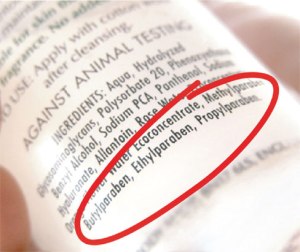Q: Sometimes I see dairy products labeled “made with milk from cows not treated with rBGH.” What is rBGH, and should I only be buying products that do not contain it?
A: rBGH stands for Recombinant Bovine Growth Hormone and is a man-made hormone injected into dairy cows to increase their milk production by 10 to 15 percent. rBGH (sometimes also listed as rBST) has been legal in the U.S. since 1993, but several other countries including Canada, Japan, Australia, and New Zealand have completely outlawed the hormone, not willing to take the risk of ingesting milk from cows pumped full of chemicals and genetically engineered hormones. When the FDA approved rBGH use for dairy cows, there had only been one study done regarding its safety for human consumption. The study was done on 30 rats, and lasted only 90 days. The company who conducted the study was none other than Monsanto, the same group who has been heavily protested for years due to its GMO-filled products.
When deciding whether to buy rBGH-free dairy products or not, you should consider the possible side effects of drinking milk from cows treated with this hormone. Two of the biggest questions are:
1. Does consuming products of rBGH-treated cows increase the growth hormone IGF-1 in humans?
“Milk from rBGH-treated cows contains higher levels of IGF-1 (Insulin Growth Factor-1). While humans naturally have IGF-1, elevated levels in humans have been linked to colon and breast cancer. Although no direct connection has been made between elevated IGF-1 levels in milk and elevated IGF-1 levels or cancer in humans, some scientists have expressed concern over the possibility of this relationship.” source
2. Cows treated with rBGH develop udder infections more often than those that aren’t treated with it, meaning they are put on antibiotics more often. When humans ingest milk of the cows injected with large amounts of both rBGH and antibiotics, are they potentially putting themselves in danger of antibiotic resistance?
“To treat mastitis outbreaks, the dairy industry relies on antibiotics. Critics of rBGH point to the subsequent increase in antibiotic use (which contributes to the growing problem of antibiotic resistant bacteria) and inadequacies in the federal government’s testing program for antibiotic residues in milk.” source
In addition to potentially being harmful to humans, I also worry about the animals’ safety when treated with rBGH. This fact sheet lists the side effects of using rBGH on cows, for me it is even more motivation to quit buying products containing milk from rBGH animals altogether.
Like always, I believe it is best to go with your most natural option when buying food. Because rBGH is required to be listed on the label if included in the product, it is not hard to avoid. Also, check out the chart below created by the Center for Food Safety to see a list of products made without the milk from rBGH-treated cows.
| Certified Organic | Produced Without rbGH | May be Produced with rbGH |
| Alta Dena Organics Butterworks Farm Harmony Hills Dairy Horizon Organic Morningland Dairy Natural by Nature Organic Valley Dairy Radiance Dairy Safeway Organic Brand Seven Stars Farm Straus Family Creamery Stonyfield Organic Wisconsin Organics |
National Alta Dena Ben & Jerry’s Ice Cream Brown Cow Farm Crowley Cheese of Vermont Franklin County Cheese Grafton Village Cheese Great Hill Dairy Lifetime Dairy Stonyfield Farms Yoplait yogurtsWest Coast Alpenrose Dairy Berkeley Farms Clover Stornetta Farms Joseph Farms Cheese Sunshine Dairy Foods Tillamook Cheese Wilcox Family FarmsMidwest Chippewa Valley Cheese Erivan Dairy Yogurt Promised Land Dairy Westby Cooperative CreameryEast Coast Blythedale Farm Cheese Crescent Creamery Derle Farms (milk with “no rbST” label only) Erivan Dairy Yogurt Farmland Dairies Oakhurst Dairy Wilcox Dairy (rbST-free dairy line only) |
Colombo (General Mills) Dannon Kemps (aside from “Select” brand) Land O’ Lakes Lucerne Parmalat Sorrento |




